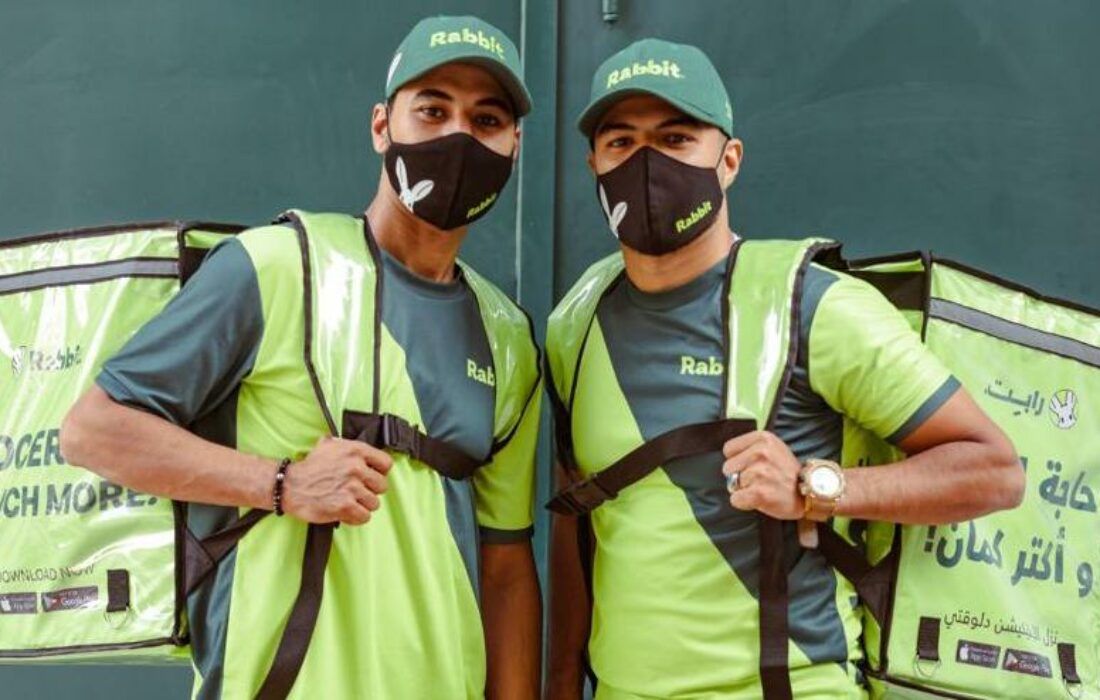Egyptian Q-commerce start-up, Rabbit acquires license to operate in Saudi, to invest $60m

Barely months after its audacious entry into the Egyptian market with a record $11 million pre-seed round, Rabbitmart, the quick commerce platform announced it has received its license to operate in The Kingdom of Saudi Arabia from the Saudi Arabian Ministry of Investment. The license was awarded by Saudi’s Minister of Investment in a ceremony held Monday at the Global Entrepreneurship Congress 2022 in Riyadh.
This license will guarantee Rabbit’s seamless expansion and operation in the Middle East’s largest e-commerce market, with revenues projected to reach 12 billion in 2022. The startup plans to invest over $60m in the next 24 months to provide its services in the Kingdom, creating over 700 jobs in the process.
The news comes as part of an impressive six months of operations for the startup, having worked in stealth between June and November 2021. In its first 75 days of operations, Rabbit claimed to have successfully delivered over 100K items and has since expanded to serve eight different neighborhoods across Cairo, the Egyptian capital.
Founded by Ahmad Yousry, Walid Shabana, Ismail Hafez, and Tarek El Geresy, Rabbit landed on the radars of Global Founders Capital, Foundation Ventures, Raed Ventures, MSA Capital, and Goodwater Capital for its 2021 seed round, for its claim to deliver groceries in 20 minutes. In the first two days of operations, only 30% of total orders were delivered in less than 20 minutes, though the number shot up to 90% in the following seven days and it’s believed that it has stayed above that percentage since.
“It’s hard to believe that only nine months ago, Rabbit was an idea,” said former Uber Egypt General Manager and Rabbit CEO, Yousry. “Six months ago, we delivered our first order in Cairo, and today, we hit a major milestone: our first international expansion beyond Egypt.”
A milestone indeed, but one that will by no means provide a simple route for Yousry and co., even given the fact that it’s predicted that the -commerce sector in the MENA region will be worth $20 billion by 2024 and $47 billion by 2030.
There is, of course, a huge opportunity in KSA, but Rabbit isn’t the only q-capable startup eyeing the same prize. In the UAE, Yalla Market has been making headway and plans to expand to Qatar this year, which inevitably means that KSA is in its crosshairs. The same could be said for Deliveroo’s ‘Express Mart’ service, which launched in UAE in 2020, and then there’s Careem, of course, which entered the q-commerce race with the launch of Careem Quik in December 2021.
While there’s of course no guarantee that these startups are equipped to scale to a market like KSA’s, q-commerce is shaping up to be the next evolution of a larger e-commerce market that is predicted to surpass $50 billion in sales in 2022.
Beyond possessing the fourth largest population in the region, KSA also provides the perfect conditions for Rabbit to scale. “Saudi Arabia has created one of the most progressive startup ecosystems globally,” Yousry said. “This kind of opportunity, and infrastructure comes together to unlock limitless potentials for innovative companies like Rabbit.”
